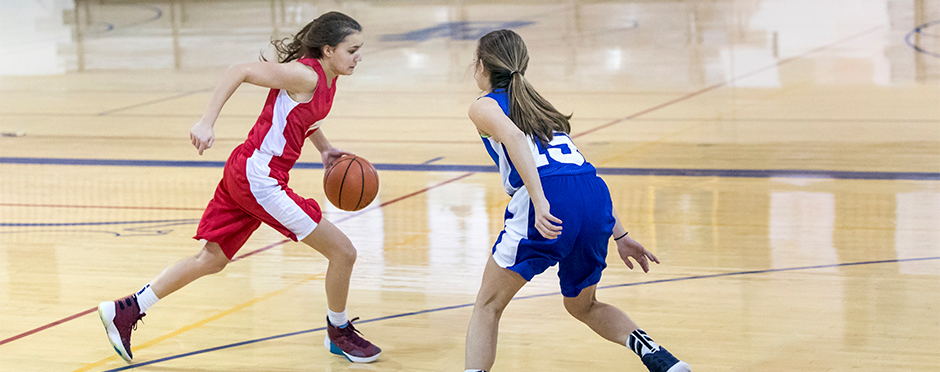
Athletic Trainers: Keeping Calm in the Face of Injury
Leave a CommentIt’s 6:33pm on a Friday night and I get a phone call from a coach:
“Sarah, we need you up in the gym. Now.”
The phone clicks off. I know that when a phone call from a coach lasts less than a minute, it tends to be something that can’t be solved with a bandage or an ice pack.
It was August. I was covering a volleyball tournament being held in two gyms. Of course, something happened in the gym I wasn’t in. I walk in the gym and it’s silent, except for one girl screaming in pain. The basketball coach walks up to me while on his phone, saying he’s calling 911. I run over to the screaming athlete clutching her lower leg. I tell her who I am and ask if I can see what’s wrong. Right before I get my hands on her to figure out what might be injured, I hear the full story. She was coming down from an attack and landed wrong on her ankle. The best description of the sound was if you slammed your foot down on a set of metal bleachers. It’s a sound that I would never want any parent, coach or child to hear.
Once I get my hands wrapped around to support, her lower leg goes limp and I immediately realize she fractured her tibia and fibula. My brain goes on autopilot. I look at the coach and ask how long he was on the phone with 911 and when they will be at the tournament site. He called as soon as he got off the phone with me since he was the assigned scorekeeper for that court and saw the incident happen. I looked at another one of my coaches and told him where to find moldable splints to try to stabilize her leg for when the ambulance comes.
While it seemed like ages, it was probably only 10 to 15 minutes from when I got there to when she was finally stabilized, secured and wheeled into the ambulance. Coaches, workers, administrators, and myself go over what happened and I finally can relax. A few days later, after everything settled, I received an email from my school’s administrators and the girl’s coach saying thank you for everything the staff did for that player.
Why don’t I get to the reason I wrote this post? Athletic Trainers (ATs) are usually the first medical personnel on site for an injury at high school, collegiate, professional and even recreational events. March is National Athletic Training Month (NATM) and every year during this month Athletico reaches out to ATs to write a post on something they believe is of importance to us. This is important to me.
As an Athletic Trainer, I see a number of different injuries and hope that I never have to call 911. ATs are educated to be calm and collected in the face of an injury, especially when someone might have a life-threatening injury or when it is an emergency scenario. I went through years of education that prepares me for anything from bloody noses and cut fingers to broken bones, neck injuries and cardiac emergencies. In my undergraduate classes, I would go through planned and unplanned scenarios when I would have to be the decision maker. I was always taught to be prepared because you never know what you may walk into at an event.
Not only are ATs the first responders to injuries, but we also have to prepare others for injuries as well. ATs create emergency action plans and go through them with other ATs at their site if they have them, as well as coaches, administrators and even the players themselves. We also get in contact with ATs at other schools to notify them of injuries or whether we have an athlete who needs care when they are at an away event. ATs are taught to always be on our toes and to have a plan in case an emergency occurs.
This is the thought that I have every time I walk into a day at work, whether it is for practices or events: Hope for nothing to happen, but be ready for the worst.
If you would like to learn more about Athletico’s Athletic Training program, click the button below.
The Athletico blog is an educational resource written by Athletico employees. Athletico bloggers are licensed professionals who abide by the code of ethics outlined by their respective professional associations. The content published in blog posts represents the opinion of the individual author based on their expertise and experience. The content provided in this blog is for informational purposes only, does not constitute medical advice and should not be relied on for making personal health decisions.
